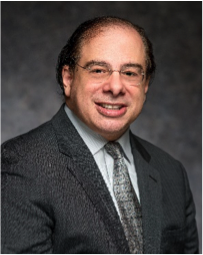KEYNOTES
Defining Cyberspace Security

|
9:40-10:40, Tuesday, June 27, 2017 Keynote Speaker: Binxing Fang Academician of China Academy Engineering, Chief Scientist of China Electronics Corporation |
Abstract: Cyberspace has become the fifth domain after sea, land, air and space. Cyberspace security is inextricably linked to national stability and human life and property. This talk explores cybersecurity issues from four levels, i.e., physics level, systems level, data level and application level, including cyber threats and confrontational technical means. I try to use some real-life security cases to make the concept of cyberspace security more intuitive and easy to understand, which I think is of great importance for understanding the overall situation.
Short Bio: Dr. FANG Binxing is an academician of CAE (China Academy Engineering), chief scientist of CEC (China Electronics Corporation), and the former President of BUPT (Beijing University of Posts and Telecommunications), Director of the Key Laboratory of Trustworthy Distributed Computing and Service(BUPT) Ministry of Education, a member of the Advisory Committee for State Informatization, an expert of the National 863 High-Tech project in the field of Information Technology. He is also the tutor of doctorial students for the Harbin Institute of Technology, the National University of Defense Technology, the Institute of Computing Technology, Chinese Academy of Sciences, and Tsinghua University. As an expert on network and information security, he has been engaged in the research on computer architecture, artificial intelligence, information security and computer network. He creatively proposed the concept of “National Computer Network and Information Content Security Infrastructure” and took the lead in building systems relative to the network and information security, including “863-917 National Network Security Incident Detection Platform”. As the pioneer, he was awarded one First Grade and one Second Grade National Prize for Progress in Science and Technology because of the development of two of these systems. Recently, he has proposed the formal definition of “Information Security”, by which, the calculating on the properties of information security is possible. FANG was awarded 10 items of Ministerial Prize for Progress in Science and Technology, and 3 items of Provincial Youth Technological Award. He was named the “Outstanding Professional Technological Talent” in 2002.
Security Challenges in the Internet of Things

|
10:50-11:50, Tuesday, June 27, 2017 Keynote Speaker: Kui Ren Professor in University of New York at Buffalo |
Abstract: The vision of Internet of things (IoT) is the interconnected physical devices of various forms, embedded with electronics, software, sensors, actuators, jointly perform sophisticated tasks ranging from data collection, exchange, and aggregation to task scheduling and system operation. IoT is expected to support abundant unprecedented services for the world and referred as “the infrastucture of the information society.” Penetrating into almost every critical aspect of the modern society, IoT, however, also poses critical security challenges. In this talk, I will discuss the uniqueness of these security challenges. Particularly, three topics will be covered in depth; that is, 1) The challenge of the device interfaces; 2) IoT hub security; and 3) Data privacy.
Short Bio: Kui Ren is a professor of Computer Science and Engineering and the director of UbiSeC Lab at State University of New York at Buffalo (UB). He received his PhD degree from Worcester Polytechnic Institute. Kui's current research interest spans Cloud & Outsourcing Security, Wireless & Wearable Systems Security, and Mobile Sensing & Crowdsourcing. His research has been supported by NSF, DoE, AFRL, MSR, and Amazon. He received IEEE CISTC Technical Recognition Award in 2017, UB Exceptional Scholar Award for Sustained Achievement in 2016, UB SEAS Senior Researcher of the Year Award in 2015, Sigma Xi/IIT Research Excellence Award in 2012, and NSF CAREER Award in 2011. Kui has published 200 papers in peer-reviewed journals and conferences and received several Best Paper Awards including IEEE ICNP 2011. His h-index is 54, and his total publication citation exceeds 18,000. He currently serves as an associate editor for IEEE Trans. on Dependable and Secure Computing, IEEE Trans. on Service Computing, IEEE Trans. on Mobile Computing, IEEE Wireless Communications, IEEE Internet of Things Journal, and an editor for SpingerBriefs on Cyber Security Systems and Networks. Kui is a Fellow of IEEE, a Distinguished Lecturer of IEEE, a member of ACM, and a past board member of Internet Privacy Task Force, State of Illinois.
Business Decision Making in Cyberspace: Data Abounds. Data Confounds

|
9:00-10:00, Wednesday, June 28, 2017 Keynote Speaker: Anthony Scriffignano Chief Data Scientist, Dun & Bradstreet |
Abstract: Business decisions have always been informed by data: data about the counterparties in a relationship, the nature of a transaction and historical risk are but a few examples. Business objectives remain relatively well understood, however virtually all of the underlying data is changing in curious and sometimes alarming ways. For example, the Internet of Things is producing increasing amounts of data that is only shared and understood in relatively constrained context, yet rich in signal value. Artificial intelligence has multiple methods, some of which learn from human users as they are being employed. Not all innovation is for good. Cyber terrorism and cyber crime are very real examples of the risks of ignoring the ways in which technology and data can be used in alarming ways. In this session, Dr. Anthony Scriffignano, SVP/Chief Data Scientist at Dun and Bradstreet, will explore how the massive availability of data is changing the way business decisions are made in the modern context. Methods, tools and technologies can be very helpful or, as Dr. Scriffignano puts it, “they can accelerate the speed with which we fail.” If, however, we ask the right questions (and maybe use a bit of different math!), new sources of data can yield fascinating inferences. This session will cover three main themes: Our Curious World (how the data around us continues to change), The Risks and Our Response (practical examples of connecting disparate information to make better decisions), and Future Trends and Recommendations. This talk will challenge our thinking about the abundance of data and the skills leaders need to succeed.
Short Bio: Anthony Scriffignano has over 35 years experience in information technologies, Big-4 management consulting, and international business. Scriffignano leverages deep data expertise and global relationships to position Dun & Bradstreet with strategic customers, partners, and governments. A key thought leader in D&B’s worldwide efforts to discover, curate, and synthesize business information in multiple languages, geographies, and contexts, he has also held leadership positions in D&B’s Technology and Operations organizations. Dr. Scriffignano has extensive background in linguistics and advanced computer algorithms, leveraging that background as primary inventor on multiple patents and patents pending for D&B. Scriffignano regularly presents at various business and academic venues in the U.S., Europe, Latin America, and Asia as a keynote speaker, guest instructor, and forum panelist, including China’s World Internet Conference (2015 and 2016) and the Guiyang Big Data Expo (2016 and 2017). Topics have included emerging trends in data and information stewardship relating to the “Big Data” explosion of data available to organizations, multilingual challenges in business identity, and strategies for change leadership in organizational settings. Scriffignano also confers with key customers on emerging trends in global data science. He was profiled by InformationWeek in a special coverage series “Big Data. Big Decisions” and by BizCloud regarding big data problem formulation and data privacy. He has been also interviewed and quoted in publications including Caixin, People.com, China Daily, and Xinhua. Scriffignano has also held senior positions with other multinational organizations. This experience includes extremely large ERP implementations and worldwide organizational change and technology adaptation efforts. He has advised firms in financial services, manufacturing (chemicals and pharmaceuticals) and information technologies. He maintains CPIM certification from APICS, the internationally-recognized Association for Operations Management, in production and inventory management.
Data Driven Cyber-Physical-Human Systems

|
10:10-11:10, Wednesday, June 28, 2017 Keynote Speaker: Panganamala Ramana Kumar Professor in Texas A&M University |
Abstract: The traditional approach to designing dynamic systems has been model-based. However, in an age where data is increasingly easier to obtain and with low latency, there is increasing interest in using available data to refine models, or even to proceed directly from data to decision. In some systems there may not even be precise models available, as for example in systems where humans are in the loop. Yet, increasingly the behavior of humans critically affects the functioning of the system. The proper usage of data in cyber-physical-human raises many problems. Sometimes there is a large amount of data, and it is necessary to sift information from data. In some instances it may even be necessary to find patterns in the data to construct models. In many instances, one may want to exploit the data but respect the privacy of the sources of the data. This talk will examine a variety of such problems that arise in the context of one important cyber-physical-human system -- the smart grid. .
Short Bio: Dr. Kumar obtained his bachelor's degree in electrical engineering from I.I.T. Madras in 1973. He received M.S. and D.Sc. degrees in systems science and mathematics from Washington University, St. Louis, in 1975 and 1977, respectively. He was elected to the National Academy of Engineering for contributions to adaptive control, manufacturing systems, and wireless networks. He is a member of the Academy of Sciences of the Developing World. In 2008, he was awarded a Doctor of Science, Honoris Causa, by the Swiss Federal Institute of Technology (Eidgenossische Technische Hochschule) in Zurich. He is a fellow of the IEEE and the recipient of the Donald P. Eckman Award of the American Automatic Control Council, the IEEE Field Award for Control Systems, the Fred W. Ellersick Prize of the IEEE Communications Society, and the Outstanding Contribution Award of ACM SIGMOBILE. He was a guest chair professor and leader of the Guest Chair Professor Group on Wireless Communication and Networking at Tsinghua University, Beijing, China. He is an honorary professor at IIT Hyderabad, and a distinguished visiting professor at IIT Bombay. He was awarded the Distinguished Alumnus Award from IIT Madras, the Alumni Achievement Award from Washington University in St. Louis, and the Daniel C. Drucker Eminent Faculty Award from the College of Engineering at the University of Illinois. He has authored and co-authored more than 300 scientific for contributions to adaptive control, manufacturing systems, and wireless networks. Kumar has been at Texas A&M University since 2011 as professor and holder of the College of Engineering Chair in Computer Engineering.






